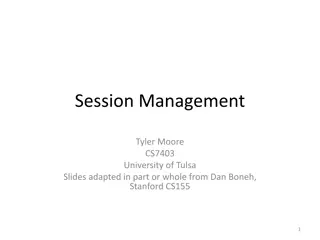
Weight Management and Psychological Flexibility in Context
Explore the interplay between weight management challenges and psychological flexibility as discussed by Professor Raimo Lappalainen. Understand contextual factors impacting weight problems and potential interventions for promoting lifestyle changes and motivational analyses. Learn about individual activation for lasting change and the importance of psychological flexibility in weight management. Dive into research on mechanisms of change during weight maintenance, focusing on control and flexibility.
Uploaded on | 0 Views
Download Presentation

Please find below an Image/Link to download the presentation.
The content on the website is provided AS IS for your information and personal use only. It may not be sold, licensed, or shared on other websites without obtaining consent from the author. If you encounter any issues during the download, it is possible that the publisher has removed the file from their server.
You are allowed to download the files provided on this website for personal or commercial use, subject to the condition that they are used lawfully. All files are the property of their respective owners.
The content on the website is provided AS IS for your information and personal use only. It may not be sold, licensed, or shared on other websites without obtaining consent from the author.
E N D
Presentation Transcript
Weight management and psychological flexibility Raimo Lappalainen Professor in Clinical Psychology and Psychotherapy Department of Psychology University of Jyv skyl , Finland
Behavioral case formulation and motivation for change
Contextual analyses weight in context : Limited Exercise Get a larger picture over the weight management problem Weight Problems: overweight Health problems High Caloric Intake: Worried about the future Depressive mood Negative self-image: Negative thoughts Family/Social Stressors: Relationship with the spouse Social Isolation Impaired Social Relationships Loss of workplace Social Skills Deficits
Contextual analyses: Limited Exercise There might be other or additional alternatives for intervention Weight Problems: overweight Health problems High Caloric Intake: Worried about the future Depressive mood Negative self-image: Negative thoughts Family/Social Stressors: Relationship with the spouse Social Isolation Impaired Social Relationships Loss of workplace Social Skills Deficits
Consider weight or weight management problem in context
Model Case formulation Individual activation for change Longer lasting lifestyle changes Motivational analyses (values)
Model Case formulation Build individual reinforcers for lifestyle changes Individual activation for change Longer lasting lifestyle changes Motivational analyses (values)
Essi Sairanen, Raimo Lappalainen, Anja Lapvetela inen, Asko Tolvanen, & Leila Karhunen (2014). Flexibility in weight management. Eating Behaviors 15, 218 224 The aim was to achieve an understanding about the mechanism of change during weight maintenance, especially related to control and flexibility.
Results These results suggest that an increase in flexible control during weight loss and a reduction of rigid control after an active weight loss phase may enhance well-being. In other words, the ability to increase flexible control and ability to give up rigid control may be beneficial to weight management and well- being.
Different behavioral change strategies may be needed over time 0.5 0 -0.5 -1 Weight [kg] Behavioral Change Strategy 1 -1.5 Behavioral Change Strategy 2 -2 -2.5 Behavioral Change Strategy 3 -3 Lost, N = 13 Gained or same, N = 13 -3.5 01/12 01/01 01/02 01/03 Date
Mobile- and web- based interventions Combining mobile- and web based interventions with some personal contact
Vision: Web- and Mobile psychological interventions
Vision: Web- and Mobile psychological interventions Training skills in daily life
Lappalainen et al. (Accepted): Depression symptoms, Face-to-Face vs. mainly web-based intervention. Behaviour Research & Therapy 25 20 Face-to-Face 15 Online Face-to-face 10 5 Web-based 0 Pre Post F-up, 6 mo F-up 18 mo
Conclusions Advantages of using case formulation models > broader interventions (Develop) programs for increasing motivation for change Interventions should teach flexible strategies, what are these strategies in practice and how to teach them? Advantages of using web- and mobile- interventions Combine all these together





















